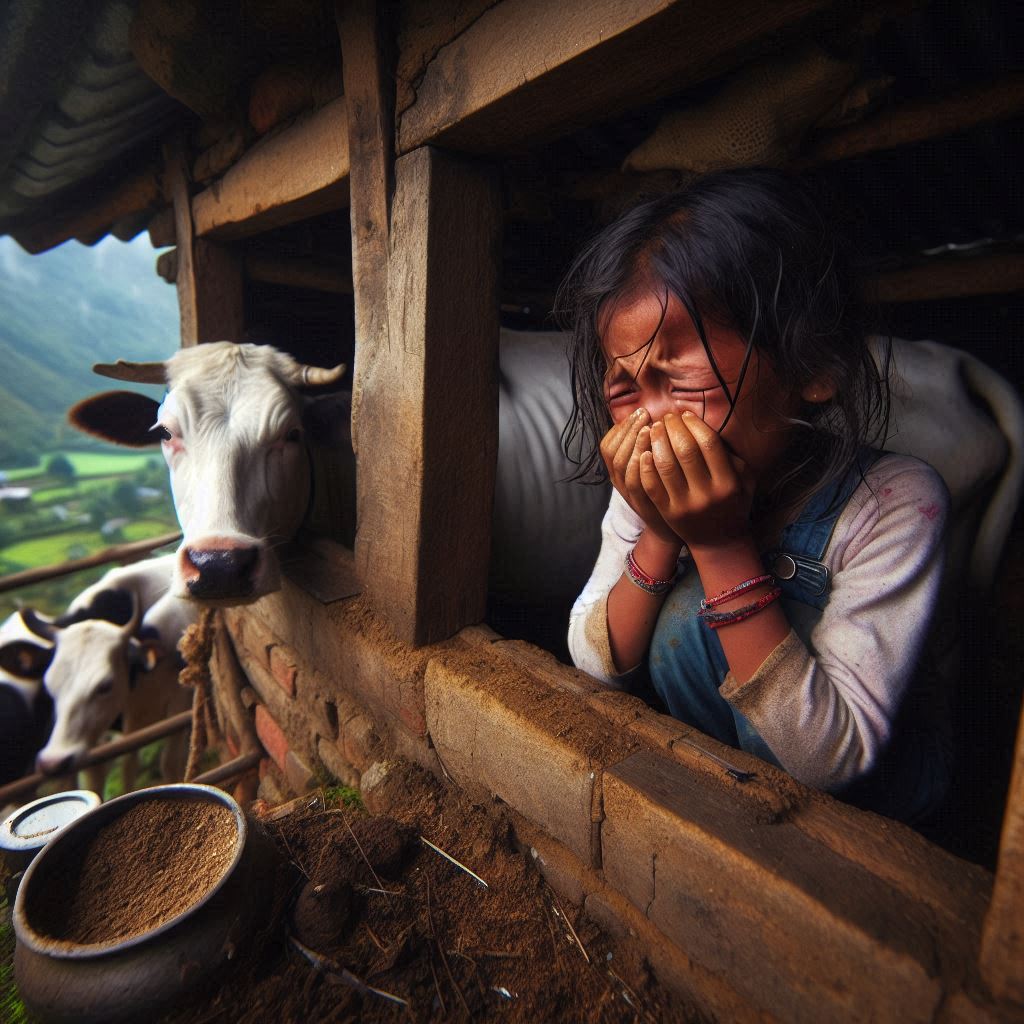The Menstrual Hut: Part II

Chaupadi, a shed created for menstruating because they believe menstruating girls are unclean to stay at home.
In 2016 Dambara Upadhyay, 21 of Timilsen VDC, Achham discovered dead inside the Chhaupadi shed, she was staying there due to her menstruation cycle. Only her nose was bleeding without any cuts or bruises suspecting she had some disease.
In 2019, two menstruating women were killed by snake biting in Chamunda Bindrasaini Municipality.
There are also stories of extreme human misery, a visually impaired from birth Kamala Japrei of Sainapasela Village had a difficult time when she started menstruating when she was 14.
Five days of banishment is hard, she makes her way to Natesanghu River when her cycle ends- she needs help for walking but as she becomes untouchable no one is there to help her. She needs to walk 3 km to bathe and wash clothes during the period. Japrei uses the same set of clothes all five days because she can’t change without help.
Chhau sheds are closely built near rivers as they have easy access to clean water, as there is no river in the village they pitch tents in the fields.
If the question is about menstruating girls being unclean is it simply a religious sentiment?
Sunita Aidi stayed in a communal shed 300 meters away from her house with her newborn which was two feet high, three feet long, and wide. She eats when she can prepare meals but sleeps hungry when she cannot cook. They stay in Chhau not because of fear of god but because of the fear of backlash from society.
This kind of statement shows that social pressure has played a significant role in forcing women to suffer and many times led to their deaths.
There has also been an effort to demolish such menstrual sheds but the external actor destroying such sheds has not always led to positive results.
In the case of Alakuli Jaisi after the administration destroyed the Chhau sheds, this did not create a scenario where the family would accommodate their member inside the house. As a result, she was rather forced to stay for days under the open sun.
Sangeeta Saud of Tikapur, after the Chhaugot was demolished by the people’s representative, was then compelled to share a pen for keeping goats.
However, in cases where locals themselves have taken the initiative, things have changed.
20 teenage girls of Kalikot came together to raise awareness about the evils of Chhaupadi who were inspired by their campaign many have stopped Chhaupadi. When the teenager started campaigning the parents did not support it- but finally, even the mother stopped participating in Chhaupadi.
The local government has selected 30 facilitators to mobilize them to raise awareness against various malpractices. The campaign has helped improve the attendance rate of girls in school.
These stories show that when the government and NGOs interfere without training the local community, this could lead to more tragedies and make the women's lives even more miserable, while local participation can have a positive impact.
There is a need to further dive into the religious dimension of the societal perspective of menstruation discussed in The Menstrual Hut: Part III.
Author
Kripendra Amatya
Editor
Dana Moyal Kolevzon, Director of International Relations, Nepa~laya Productions
Published Date
February 21, 2025



